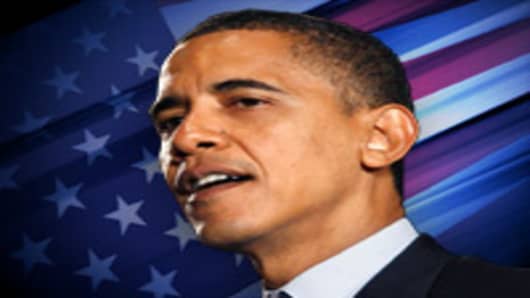President Obama told CNBC on Tuesday that the US is not in danger of overregulating the economy and that the outcome of the Iranian election will not make that much difference in his adminstration's policies toward that country.
"If we've got rules of the road, that's what makes capitalism thrive," Obama said in a taped interview. "That's why people invest in this country."
- Watch Obama Kill Fly During Interview
- Read Transcript of the Interview
The president said "most of these interventions" into the US economy—including the auto and bank bailouts—had already begun under President Bush and were only temporary.
"That's not something that we welcomed and the sooner we can get out, the better," he said.
The proposed overhaul of financial regulation, which will be formally announced on Wednesday, was needed to protect investors and consumers, he said.
"What we're trying to do is increase the transparency and the openness," he explained.
"I think what we focused on was number one, do we have the tools to precent the kinds or risks we saw last September, and we didn't," he added. "Did we have a means of anticipating problems and regulating the non-bank sector. We concluded we did not have those powers and we put them in place."
Obama said that consumer protection was "scattered all over the place and we are putting in place the tools to protect people."
As for the disputed presidential elections in Iran, Obama said it won't make that much difference to the US what the eventual outcome is.
"The difference in actual policies between Ahmadinejad and Moussavi in terms of their actual policies may not be as great as advertised," he said. "I think it's important to understand that either way we are going to be dealing with a regime in Iran that is hostile to the US. We have long-term interests in not having them with nuclear power and funding terrorism."
In the wide-ranging interview, Obama also said:
—That the growing federal deficits are "something that keeps me awake at night."
"We have a serious problem in long term defitis and debts," he said."I make no apologies for short term debt...As soon as this economy recovers and that means planning now, we are going to have to close that gap."
—That he is willing to consider changes to entitlement programs to cut back on rising costs.
"I believe we can reform entitlements," he said. "But most experts will tell you the biggest driver of those costs are healthcare costs...I'm open to Social Security and how we make some tweaks to that. As for Medicare and Medicaid, we can look at prevention and how we are paying doctors. If we get that done, then we've gone a long way to solve those problems."



